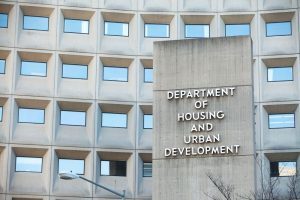 On Monday, the U.S. Department of Housing and Urban Development (HUD) invited public comments on amendments to its Affirmatively Furthering Fair Housing (AFFH) regulations.
On Monday, the U.S. Department of Housing and Urban Development (HUD) invited public comments on amendments to its Affirmatively Furthering Fair Housing (AFFH) regulations.
The new rulemaking, according to HUD, is so that the agency can offer more helpful guidance to states and local communities to effectively promote fair housing choice through the use of their federal funds.
According to the agency's advance notice on the program, the regulation will provide HUD program participants with a specific planning approach to assist them in meeting their statutory obligation to affirmatively further the purposes and policies of the Fair Housing Act. As the agency begins the process of developing the proposed rule to amend the existing AFFH regulations, it has asked for public comments.
HUD said that the comments will be used on changes that will minimize regulatory burden while more effectively aiding program participants to plan for fulfilling their obligation to affirmatively further the purposes and policies of the Fair Housing Act; create a process that is focused primarily on accomplishing positive results, rather than on performing analysis of community characteristics; provide for greater local control and innovation; seek to encourage actions that increase housing choice, including through greater housing supply; and more efficiently utilize HUD resources.
"HUD believes very deeply in the purposes of the Fair Housing Act and that states, local governments, and public housing authorities further fair housing choice," said HUD Secretary Ben Carson. "HUD's 2015 rule often dictated unworkable requirements and actually impeded the development and rehabilitation of affordable housing."
On July 16, 2015, HUD published its AFFH final rule. The stated purpose of that regulation was to provide HUD program participants with a revised planning approach to assist them in meeting their legal obligation to affirmatively further fair housing. "Since then, HUD found that in contrast to its stated goals, the AFFH rule proved ineffective, highly prescriptive, and effectively discouraged the production of affordable housing," the agency said in a statement.
"It's ironic that the current AFFH rule, which was designed to expand affordable housing choices, is actually suffocating investment in some of our most distressed neighborhoods that need our investment the most," Carson continued. "We do not have to abandon communities in need. Instead, we believe we can craft a new, fairer rule that creates choices for quality housing across all communities."

 theMReport.com Your trusted source for mortgage banking news
theMReport.com Your trusted source for mortgage banking news








